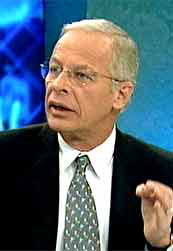UPDATES
ABC interviews offer informed perspectives on Syria weapons strike
February 1, 2013 | Ahron Shapiro

In the aftermath of reports of an Israeli attack on a Syrian weapons convoy, ABC Radio carried two interviews on Friday worthy of special notice.
On Radio National’s Breakfast program, Fran Kelly spoke with Israeli Channel 2’s esteemed journalist and analyst Ehud Yaari, who of course recently visited Australia and spoke at an AIJAC function, video available here.
(You may listen to Friday’s ABC interview here or read AIJAC’s transcript here.)
Hours later, on The World Today, Simon Santow interviewed former CIA operative Robert Baer.
(Listen or read the transcript here and read an extended transcript of unbroadcast extras here.)
A common theme in the view of both analysts was the belief that, facing the prospect of Syria’s imminent transfer of advanced weaponry to Hezbollah, Israel was left with no other choice but to intervene militarily.
Yaari told Kelly that the convoy was carrying weapons that would give Hezbollah capabilities that would exceed that of any terror group, a technology transfer which Israel had long made clear would cross a red line.
EHUD YAARI: What I can tell you is that what was hit in Damascus was a compound in which very advanced weapons systems, destined [for] Hezbollah, the terrorist organisation in Lebanon, was stored. And the intention of the Syrians was to have trucks carry those weapons systems into Lebanon, such as SA-17 anti-aircraft missile batteries, etc. Extremely advanced. I mean, I don’t know if any other terrorist organisation that is in possession of such weapons systems. Yakhont coast-to-sea missiles that could threaten, for example, the Israeli gas exploration in the eastern Mediterranean, etc.
So [the strike occurred] about 15 kilometres southeast of the Syrian capital of Damascus. And the Syrians are saying now that it is the rebels, the uprising against President Assad, who are responsible for the Israeli attack, because they were hitting, for the past two years, also, the radar installations and anti-aircraft air defence systems of Syria. So the Syrian comment is that they see a collusion, which does not exist, of course, between Israel and the Islamist rebels in Syria.
FRAN KELLY: Ehud, what’s the thinking of why the Syrians would be wanting to deploy this kind of weaponry across the border to Hezbollah in Lebanon? Is that tied up with the conflict which is currently going on within Syria?
EHUD YAARI: Yes, I think that the Syrians, President Assad in this case, needs to pay the Iranians back for the amount and support and supplies that he is getting from Iran. Iran is very restless that they are going to lose their huge investment in Syria once President Assad is over, and they would like to take those weapons systems destined [for] Hezbollah, which were stored for several years now, inside Syria, into Lebanon, into the hands of Hezbollah.
In the past few years Israel has sort of a standing warning to Syria that if those weapons systems go into Lebanon, into the hands of Hezbollah, Israel will have to act. But at this point, it seems the Iranians were insistent that the weapons have to move and they were trying to do so.
Meanwhile, Baer, who in an unbroadcast portion of his interview that only appeared on the ABC website freely admitted to Santow that he generally rarely sides with Israel’s strategic worldview, nevertheless expressed understanding over Israel’s motivation for the current airstrike, saying that it was a clear case of self-defence, and that the price of not acting decisively would have been higher.
SIMON SANTOW: Now, if Israel was acting out of self-interest in making the military strike, were they thinking of the long game beyond what you just referred to? Were they thinking about how Iran might react to this sort of move?
ROBERT BAER: I don’t think they care what Iran does right now. I don’t think they care what anybody or the United States says right now. They simply – this is a question of self-defence. I mean, I don’t often take the Israeli position, but right now, they’ve got a mess on their border and a lot of sophisticated weapons, and they don’t know whose hands they are going to fall in. And so that any opportunity they have to destroy these things – they’re going to do it. And the idea that advanced surface-to-air weapons getting to Hezbollah, who’d be able to use them and, you know, be able to hide them, is crossing a red line for the Israelis.
Ahron Shapiro
Tags: Lebanon





